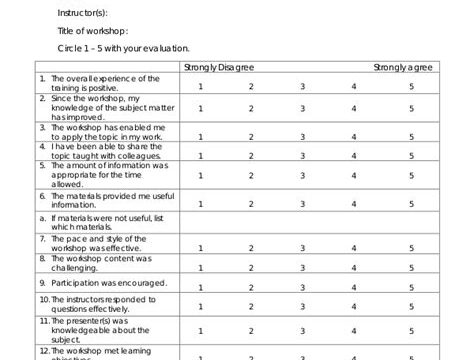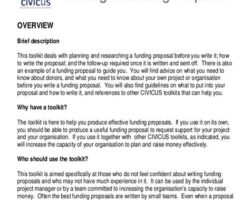Discover the importance of workshop evaluation, key metrics, tools and strategies for implementation, analyzing data, addressing areas for improvement, leveraging success and communicating results.
Importance of Workshop Evaluation
Workshop evaluation is a crucial aspect of any successful workshop. It allows organizers to gauge the effectiveness of their event and make informed decisions on how to improve future workshops. Assessing the impact of the workshop on participants and their overall satisfaction with the content and delivery is key to understanding what worked well and what needs improvement.
Additionally, workshop evaluation provides valuable data that can be used to demonstrate the success and impact of the event to stakeholders and funders. By collecting feedback and analyzing the results, organizers can showcase the value of their workshops and make a case for continued support and investment.
Moreover, regular evaluation of workshops helps in maintaining quality standards and ensuring that the content and delivery remain relevant and impactful. It provides a continuous feedback loop that allows organizers to make adjustments and improvements, leading to better experiences for participants and ultimately a more successful workshop overall.
Key Metrics for Evaluation
When it comes to evaluating the success and impact of a workshop, it is important to identify and measure the key metrics that will provide valuable insights. One key metric for evaluation is participant satisfaction. This can be measured through post-workshop surveys or feedback forms, allowing attendees to provide their thoughts on the content, delivery, and overall experience of the workshop. Another important metric is learning outcomes. This can be measured through pre- and post-workshop assessments to gauge the knowledge and skills acquired by participants as a result of the workshop.
Additionally, engagement levels are a crucial metric for evaluation. This can be measured by tracking attendance rates, participation in activities, and interaction during the workshop. It provides insight into how engaged and involved participants were throughout the workshop. Another key metric to consider is impact on behavior change. This can be assessed through follow-up surveys or interviews to determine if participants have applied the knowledge and skills gained from the workshop in their personal or professional lives.
Overall, identifying and measuring these key metrics for evaluation will provide valuable data to assess the success and impact of the workshop. By analyzing these metrics, workshop organizers can gain a comprehensive understanding of the effectiveness of the workshop and make informed decisions for future workshops.
Developing Evaluation Tools
When it comes to organizing workshops, it’s important to have the right tools in place to effectively evaluate the success and impact of the event. Developing evaluation tools is an essential step in this process, as it allows you to gather the necessary data and feedback to assess the effectiveness of your workshop.
One of the key aspects of developing evaluation tools is to ensure that they are tailored to the specific goals and objectives of the workshop. This means identifying the key areas that you want to measure, such as participant satisfaction, learning outcomes, and overall impact. By developing targeted evaluation tools, you can gather more meaningful data that will help you make informed decisions about the future of your workshop.
Furthermore, the process of developing evaluation tools should also include defining clear metrics and benchmarks for success. This could involve creating surveys, questionnaires, or other assessment tools that are designed to capture both quantitative and qualitative data. By establishing these evaluation tools upfront, you can ensure that you are collecting the right information to effectively measure the success and impact of your workshop.
Implementing Evaluation Strategies
Once you have developed the evaluation tools and determined the key metrics for assessing the success of your workshop, the next step is to focus on implementing evaluation strategies. This phase involves planning and executing the methodologies for data collection and analysis to effectively measure the impact of the workshop.
One of the crucial aspects of implementing evaluation strategies is to ensure that the data collection process is comprehensive and aligned with the predetermined evaluation metrics. This may involve using a combination of quantitative surveys, qualitative feedback, and post-workshop assessments to gather a holistic view of the participants’ experiences and the overall success of the workshop.
Additionally, it is important to establish a clear timeline for data collection and analysis, as well as designate responsibilities for different aspects of the evaluation process. This ensures that the strategies are effectively implemented and the necessary data is collected in a timely manner, allowing for a thorough analysis of the workshop’s impact.
Analyzing the Evaluation Data
Once you have gathered all the data from your workshop evaluations, it’s time to start analyzing the results. This step is crucial in understanding the impact and success of your workshop. By analyzing the evaluation data, you can identify trends, strengths, and weaknesses that will help you make informed decisions for future workshops.
Start by organizing the data into categories such as participant demographics, workshop content, and overall satisfaction. Look for patterns or discrepancies in the responses to identify key areas for improvement and success. It’s also important to analyze the data in relation to your initial workshop goals and objectives to determine if they were achieved.
Once you have thoroughly analyzed the evaluation data, you can use the insights gained to make impactful changes for future workshops, addressing any areas for improvement and leveraging the success. Remember, analysis of the evaluation data is not just about finding out what went wrong or right, but also about understanding the why behind the results to drive continuous improvement and success.
Addressing Areas for Improvement
When it comes to workshop evaluation, it is important to not only focus on the successes, but also on the areas that need improvement. Addressing areas for improvement is crucial in enhancing the overall quality and impact of future workshops. Evaluating the effectiveness of the workshop content, delivery, and engagement is essential in identifying these areas. By acknowledging and addressing these areas, workshop organizers can ensure that their future workshops are more successful in achieving their goals.
One key way to address areas for improvement is to analyze the evaluation data collected from the workshop. This data can provide valuable insights into the specific aspects of the workshop that may need adjustment. Whether it is the workshop agenda, the presentation materials, or the facilitation techniques, the evaluation data can pinpoint areas that require attention and modifications. By carefully analyzing this data, workshop organizers can develop targeted strategies for improvement and make informed decisions on how to enhance future workshops.
Additionally, communicating the results and impact of the workshop evaluation is essential in addressing areas for improvement. Sharing the findings and recommendations from the evaluation with the workshop stakeholders, including participants, presenters, and organizers, allows for open discussions and collaboration on how to address the identified areas for improvement. It also demonstrates a commitment to continuous improvement and ensures transparency in the workshop evaluation process. By involving all stakeholders in the process of addressing areas for improvement, workshop organizers can foster a culture of ongoing learning and development.
Leveraging Success for Future Workshops
Workshop Evaluation: Assessing the Success and Impact of Your Workshop
When it comes to hosting successful workshops, it’s important to not only assess the impact and success of the current event but also to leverage that success for future workshops. By analyzing the evaluation data from the current workshop, organizers can identify strengths, weaknesses, and areas for improvement. This information can then be used to develop evaluation tools and implement evaluation strategies for future workshops, ensuring that they are even more successful.
One key aspect of leveraging success for future workshops is communicating results and impact. Sharing the positive feedback and outcomes from the current workshop can help attract new participants and sponsors for future events. Additionally, it can also build credibility and trust with stakeholders, making it easier to secure resources and support for future workshops.
Lastly, addressing areas for improvement is crucial for leveraging success for future workshops. By acknowledging and implementing changes based on the evaluation data, organizers can demonstrate a commitment to growth and improvement, making future workshops even more appealing and impactful.
Communicating Results and Impact
After conducting a thorough evaluation of your workshop, it is essential to effectively communicate the results and impact to all relevant stakeholders. This includes sharing the key findings, such as participant feedback and any quantitative data collected, in a clear and meaningful way. One of the most important aspects of communicating the results is to emphasize the impact that the workshop had on the participants and the broader community.
When communicating the results and impact of the workshop, it is important to tailor the message to the specific audience. For example, while the overall success and positive feedback may be highlighted for potential future participants, stakeholders such as sponsors and funders may be more interested in the tangible outcomes and changes resulting from the workshop. It is also crucial to be transparent about any areas for improvement that were identified during the evaluation process.
Utilizing a variety of communication channels, such as reports, presentations, and social media, can help ensure that the results and impact of the workshop reach a wide audience. Ultimately, effectively communicating the results and impact of the workshop plays a vital role in demonstrating the value of the workshop and maintaining support for future initiatives.
Frequently Asked Questions
What is the purpose of workshop evaluation?
The purpose of workshop evaluation is to assess the effectiveness, success, and impact of the workshop in achieving its objectives and meeting the needs of the participants.
What are the key components of workshop evaluation?
The key components of workshop evaluation include establishing clear goals and objectives, collecting feedback from participants, assessing the delivery and content of the workshop, and measuring the outcomes and impact of the workshop.
How can workshop evaluation help improve future workshops?
Workshop evaluation can help identify strengths and areas for improvement, inform future workshop planning and design, and provide insights for making necessary adjustments to enhance the overall effectiveness and impact of future workshops.
What are some common methods for gathering feedback in workshop evaluation?
Common methods for gathering feedback in workshop evaluation include participant surveys, interviews, focus groups, observation, and analysis of participant performance and behavior during the workshop.
How can workshop evaluation contribute to demonstrating the workshop’s impact and value?
By systematically collecting and analyzing data on the workshop’s outcomes and impact, workshop evaluation can help demonstrate the workshop’s value, effectiveness, and relevance in meeting the needs and expectations of the participants and stakeholders.
What are the potential challenges in conducting workshop evaluation?
Potential challenges in conducting workshop evaluation may include obtaining honest and constructive feedback from participants, ensuring the validity and reliability of the evaluation methods, and managing limited resources and time constraints for conducting the evaluation.
How can workshop evaluation findings be effectively communicated and utilized?
Workshop evaluation findings can be effectively communicated and utilized by sharing the results with relevant stakeholders, using the findings to make informed decisions about future workshops, and incorporating the recommendations for improvement into the workshop planning and implementation process.





